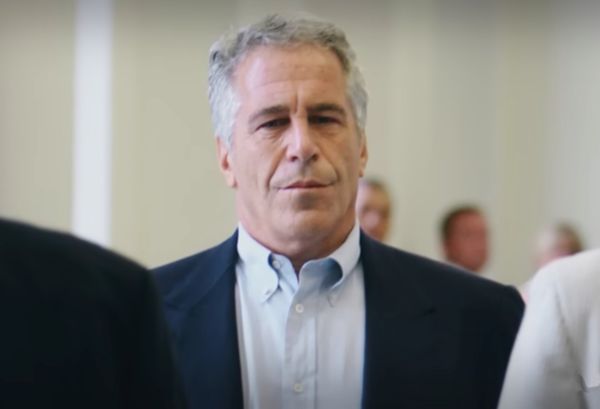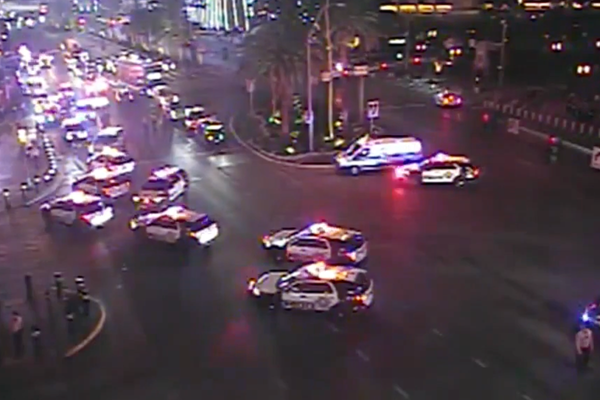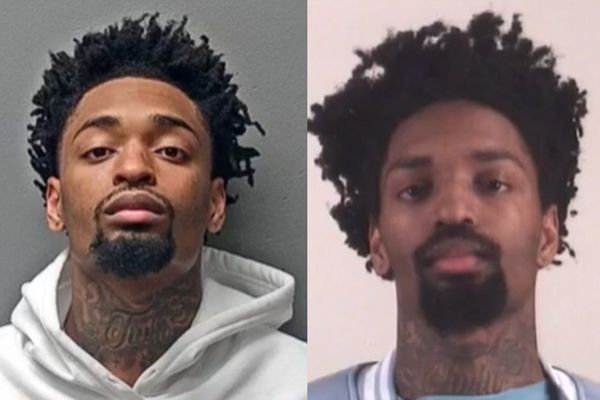With speculation swirling about what the Miami Heat might do this offseason, team president Pat Riley addressed reporters in a press conference setting on Tuesday afternoon for the first time since last June.
“I really don’t want to talk about all the rumors,” Riley said at the start of his 38-minute season-ending news conference at Kaseya Center. “We had a great season this year.”
The Heat finished just three wins short of an NBA championship following a historic and improbable playoff run this past season as the Eastern Conference’s No. 8 seed. It marked the third time Miami has advanced to the Eastern Conference finals and the second time Miami has made the NBA Finals in the last four seasons, but the Heat is still chasing its first NBA title since 2013.
Building the Heat’s next championship team is what drives Riley.
“It was just a great year,” Riley, 78, said. “And so we’re working now on our fifth iteration, if I can use that word, of building another championship team. And that’s my goal. I have no other plans other than to do that. We have to see what happens in the next couple of weeks in free agency. I can’t talk about that.”
Even after the Heat’s unsuccessful pursuit of a trade for Bradley Beal and its renewed push for Portland Trail Blazers star guard Damian Lillard in recent days, NBA rules prohibited Riley from speaking about Beal or Lillard because they’re both currently under contract with other teams. Riley also couldn’t speak about impending free agents.
That left Riley speaking about this offseason in hypotheticals rather than absolutes.
“We’re not going to take a wrecking ball to this thing — all these rumors that we’re talking about,” Riley said. “Good times come, good times go. Hard times come, hard times go. We’re not going to take a wrecking ball to a good team that had some real adversity this year that I felt built some strength. We have a good team, and probably a great team.
“And so, running it back? Yes. Doing something that can help you with that last step? Yes, if it’s a possibility and if there’s an opportunity without setting you back while you’re moving forward. It’s just onward with us. It’s onward.”
In other words, Riley didn’t rule out running it back with most of this past season’s roster but also didn’t rule out improving the roster through a trade if that opportunity presents itself this offseason.
The reality is those are two of the Heat’s only options this summer because of its salary-cap situation.
The Heat faces a salary cap crunch with only seven players under guaranteed salaries for next season: Jimmy Butler ($45.2 million), Bam Adebayo ($32.6 million), Kyle Lowry ($29.7 million), Tyler Herro ($27 million), Duncan Robinson ($18.2 million), Caleb Martin ($6.8 million) and Nikola Jovic ($2.4 million).
Including the $9.5 million player option that Victor Oladipo is expected to accept after suffering a significant knee injury this postseason, Haywood Highsmith’s $1.9 million salary the Heat is expected to guarantee and a roughly $3 million cap hit for its first-round pick at No. 18, Miami has about $176 million in salaries committed to 10 players.
With the projected salary cap for the 2023-24 season set at $134 million and the projected luxury tax set at $162 million, that means the Heat is already a luxury tax team and very close to crossing the newly instituted and ultra-punitive second apron of $179.5 million with roster spots still to fill for next season.
If the Heat crosses the second apron, as expected, it also won’t be permitted to use the taxpayer midlevel exception that it would otherwise have at its disposal in previous years before the new salary-cap rules were established.
Since the Heat has no cap space and is already close to the second apron, the only realistic way to add outside talent this offseason is through the draft, a trade and/or with minimum contracts unless a move is made to change the salary-cap math.
The Heat can also leverage the Bird rights it holds for its own impending free agents, like Max Strus and Gabe Vincent, to exceed the salary cap to re-sign them and bring back most of last season’s roster.
Whichever route the Heat chooses, Riley made clear the Heat expects to pay the luxury tax this season for the first time since the 2019-20 season.
“They’re committed to winning championships,” Riley said of Heat owner Micky Arison and CEO Nick Arison. “And we’re in the tax. Andy [Elisburg] has been already making sure that we’re working around the edges of the tax, trying to put together a competitive team, and we have. ... [The Arisons are] committed to doing whatever it takes to fulfill his championship dream. It’s been 10 or 11 years, so we’re getting a little anxious here. We’d like to win another one.”
But the new collective bargaining agreement will make owners around the NBA think twice about building an expensive pay roll, and not only because of the luxury tax they’ll incur.
This upcoming season, teams above the second apron won’t have access to the taxpayer mid-level exception and teams above either apron will be prevented from signing a player waived during the regular season if that player’s pre-waiver salary was larger than the non-taxpayer midlevel exception of about $10.5 million.
Among the other punitive measures established by the new CBA, the salary-matching component of completing a trade will become a lot more challenging for high-spending teams.
Luxury tax teams could take back salaries of as much as 125 percent of what they trade out under the old CBA. But the new CBA shrinks that number to 110 percent starting on July 1 and becomes even more restrictive next offseason when, starting July 1, 2024, luxury tax teams can’t take back more salary in a trade than they send out and teams above the second apron can’t aggregate salaries in a trade.
“The biggest difference in this CBA is that at one time there were just financial penalties,” Riley said. “If you can play for a championship and you’re willing to pay the financial penalties of the luxury tax or repeater tax, now it’s different. Because now you can’t acquire talent. You might not be able to sign a buyout guy, you might not be able to use a midlevel, you might lose a draft pick. Now, they penalize you in all those areas.”
While Riley didn’t tip his hand on Tuesday, he did emphasize that the Heat will use a prudent approach this offseason regardless of the path it takes while adding that he “would to like to try to get [Butler] more support.”
“Subtle moves will be enough if they’re the right moves during this offseason,” Riley said. “Hitting the home run, it’s addition by subtraction. We’ve done this. We’ve played this game for 27 years and some of them we hit on, we hit big and I plan on hitting big again. But I’m not just swinging for the fences right now because it could be a little bit reckless and after this year, I feel very good about where we are. But also, we need to improve.”
Next up for the Heat is Thursday’s NBA Draft. Then contract options have to be decided on by June 29 and free agency opens June 30.
All the while, trade speculation continues to surround the Heat.
“Persistence and perseverance has been something that’s been part of my life forever,” Riley said. “And, so, we’re going to show some patience here instead of react without knowing what the consequences could be in doing something. So, right now, this is what we have.”







